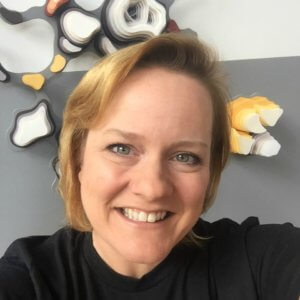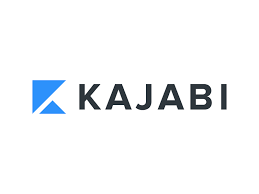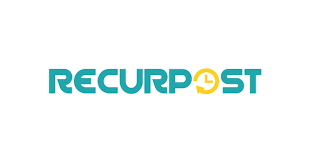As a coach do you often repeat information to your clients that could be documented and used in a digital course?
Anything that is repetitive in your business can be outsourced. The same goes for information. Anything you teach or require from your clients can be documented in a step-by-step format that helps your clients progress, saves you and your clients time and money, and with the right marketing could bring you a healthy passive income stream.
If you find yourself repeating things as a coach that you consider pre-requisite knowledge before you can help your clients achieve their goals, creating a course would give them the foundation they need to be able to work with you.

Learn to free up time in your coaching business with digital course and online marketing education through Social Media Traffic School’s free classroom.
What is a course and how should it be delivered?
A course is a direction or route to be taken to achieve an outcome. It can be delivered any way you want to deliver it: videos, documents, an email series, an audio series, an e-book, or a full blown curriculum with modules and lessons, workbooks, videos, and interactive workshops online or in-person.
Several software programs are available that deliver digital e-learning courses and track student progress. The choices range from simple course delivery solutions to full blown programs that cater to those who want to create additional passive income streams and market them.
When is your digital course enough?
Most coaches overly complicate courses to be the ultimate be-all, end-all resource for their clients in a perfectly packaged digital program. This overwhelm tends to stop coaches from developing courses in the first place, thinking that what they are creating is not enough. Courses do not have to cover every topic, every example, or every situation to create an outcome for your client or for you as a coach to be able to reach the clients you need.
Consider the following ways that you can develop a course for your business to help you expand what you teach, enhance your offers, and to coach your clients into bigger and better outcomes.
1. EDUCATE YOUR CLIENTS
When your client struggles to understand industry lingo, giving them a glossary of terms with examples is key to helping them be able to know what solutions they are looking for. We tend to speak our own language in our businesses and assume that our customers know what we are talking about. It’s the number one obstacle to take a client’s language and turn it into industry solutions. Our potential clients do not know these terms, what they do, or that they need them to solve their problems.
For example, if you are coaching someone on how to follow a ketogenic diet, it would make sense for you to have documentation that defines what ketogenic means. Teaching someone how a body responds to a keto diet, why it helps someone lose weight, or to see examples of outcomes is key education for someone to understand before they can commit to following the plan.
If you are the coach who teaches prospective clients what industry terms mean, provides valuable information, and shows success stories, then you are top-of-mind when they decide to take action.
2. FOCUS ON WHAT YOU DO BEST
When you provide a service to clients, such as Facebook advertising, your clients are required to know who their target audience is, what they are selling, and how they plan to deliver their product or service. Digital marketing is an excellent way to fast track qualified leads into your business. You must be ready for an onslaught of traffic to your website, landing page, or Facebook business page, so that you can handle the volume it produces.
For example, Facebook loves to tease business page owners into boosting posts to their potential clients as a form of advertising. They make it look so easy to amplify content. Dropping money on a boosted post without doing any of the digital marketing research first to define which audience you’re trying to reach can make a $150 investment in Facebook ads slip right to the bottom of the ocean producing no results. A course that teaches someone how to do market research that helps them define their potential customers would greatly advance the conversation when they want you to create and place ads for them.
If your business is to help your clients create, place, monitor, and troubleshoot ads, having them come to you prepared to run the ads in the first place not only saves the client money but helps the ads specialist focus on what they do best.
3. SAVE TIME, MONEY & BURNOUT
When your clients need quick outcomes but they cannot afford to hire you for every step of the journey, a course gives them a way to be able to afford your private coaching services. Entrepreneurial ventures are particularly difficult because the business owner finds themselves in the business of running a business instead of in the business of serving their clients. Successful coaches who want to free up their time and energy to be able to do what they do best have processes in place to market, sell, onboard, and work with their clients on what they loves doing. Business needs such as software, content, equipment, and more can weigh heavily on a coach trying to serve clients. More time ends up being spent on administering the business than on helping clients solve problems.
For example, many coaches find themselves spending more than half their time figuring out software, creating content, marketing, networking, setting up payment systems, and everything else that has nothing to do with the service they are providing. The tools and software they’re using are complicated or require integrations that make the non-technical coach’s head spin. Even those who are tech savvy end up wasting so much time on tasks that are not getting them more clients.
The the number one contributing factor to the failure of a business or burnout of the business owner is working outside of your zone of genius.
Number one digital course software
4. CREATE PASSIVE INCOME STREAMS
Courses are a fantastic way to create passive income streams that do not take up much time once they are in place and functioning properly. As coaches gain new clients, processes and procedures need to be put into place to be able to serve more people efficiently. Without the efficiency of onboarding procedures, material delivery, or marketing in place, it becomes more and more difficult to serve clients and still enjoy the business.
Once you create a course that you use successfully with your clients, many questions arise as to how you can be successful marketing and selling your course. This requires understanding your clients’ digital profiles, marketing funnels, advertising, what software to use, and how to package offers in such a way that helps warm up cold prospects into paying customers.
For example, a fitness coach who loves to focus on fitness motivation knows that nutrition is a key element to her client’s success. This fitness coach does not enjoy teaching the nutrition, so she creates a nutrition plan or course that her client can follow, while she focuses on the motivational and life coaching aspects that she loves.
Using software that takes care of all the aspects of marketing and administering courses makes developing passive income streams an incredibly easy process compared to piecing it together one system at a time.

Sally Hendrick, The M(ad) Scientist, Facebook ads expert for coaches & consultants. Click Sally’s picture to learn more.
Meet the author, Sally Hendrick:
As a keynote public speaker, Social Media Examiner Contributor and Founder of Social Media Traffic School, Sally specializes in target market research, marketing funnels, digital courses, and Facebook advertising strategies.![]()
With 25 years as an actuarial statistician, Sally has been turning statistics into stories for companies to adjust and tweak their marketing programs to be effective. While working with solopreneurs and small businesses through her online academy of classes to help them plan their marketing strategies using social media, Sally also helps medium and large size companies create strategic marketing plans and train marketing staff to carry out company objectives. Her methods are used to successfully increase return on investment with social media, as traditional marketing tactics are bringing less and less return.
Sally resides in Nashville, Tennessee with her husband and 3 daughters. Message Sally on Facebook to get in touch.










